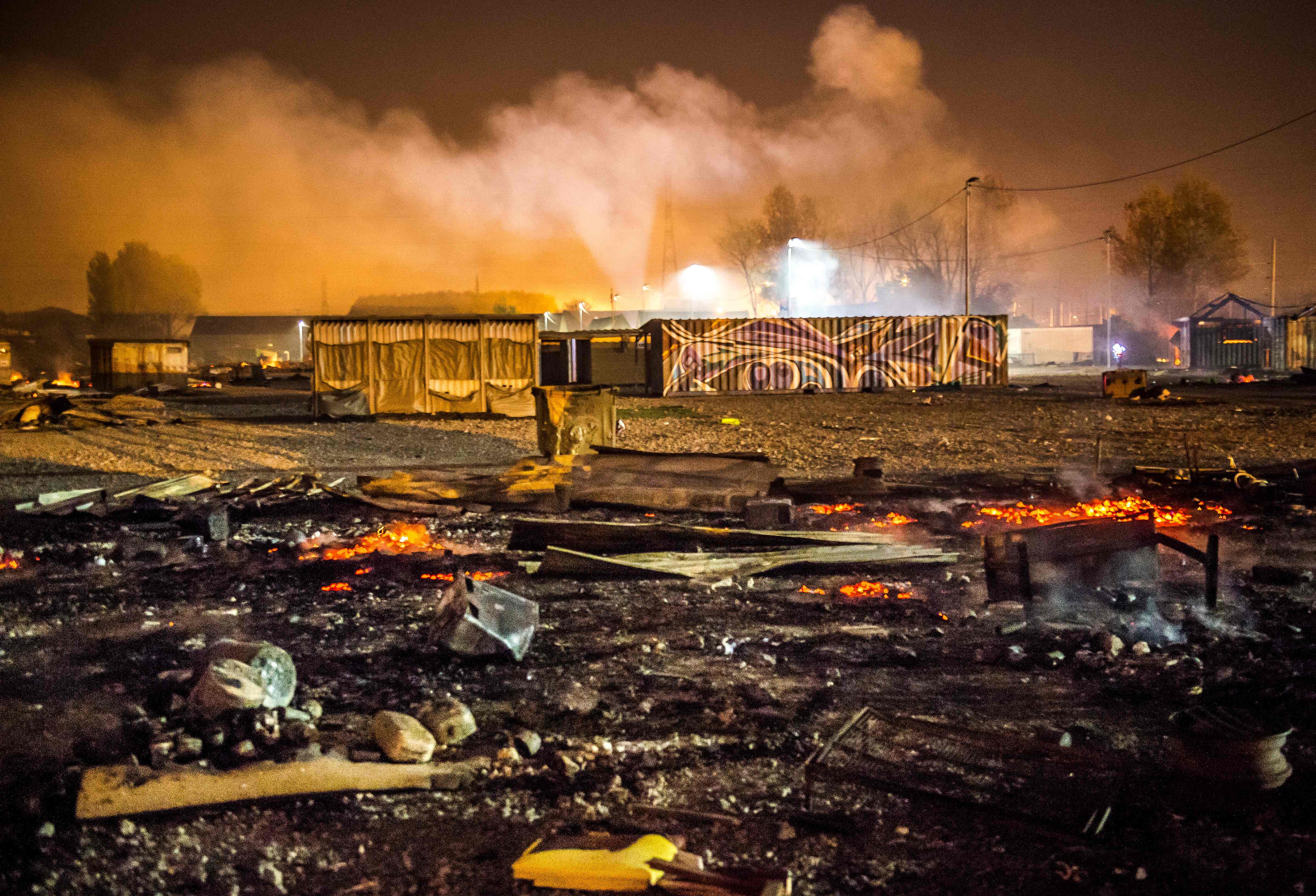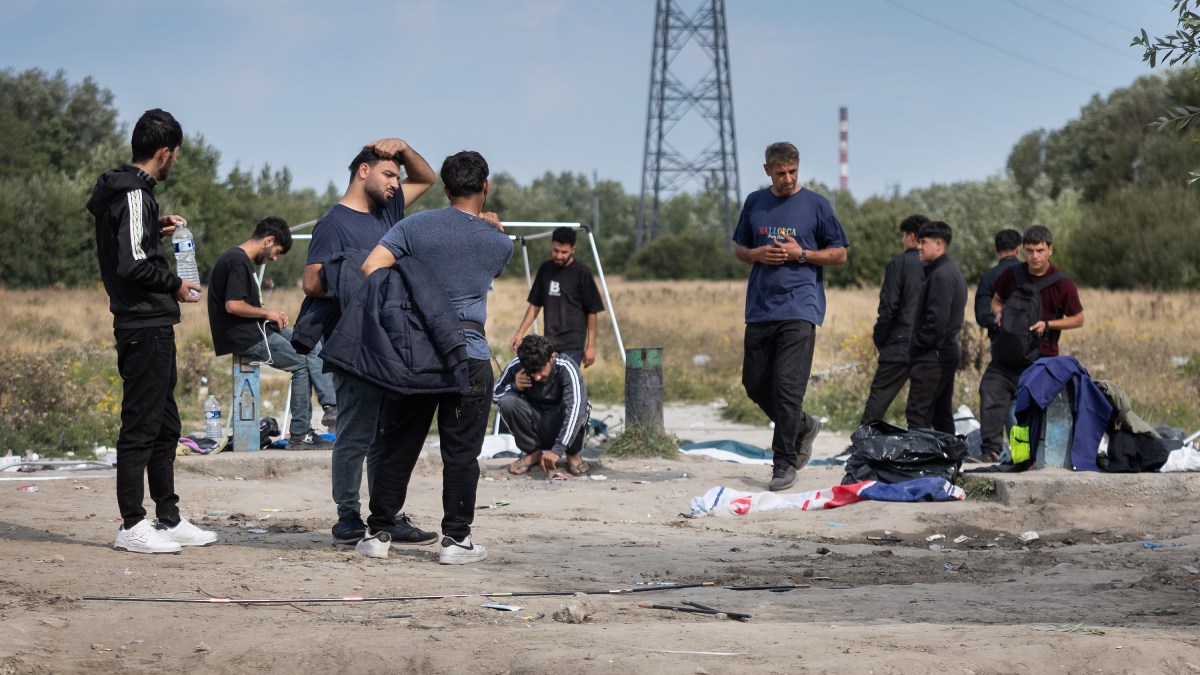‘Why would we wait here,” asked Omid, looking around at the squalid encampment he calls home, considering how to continue his journey to the UK.
In the Grande-Synthe migrant camp, a sprawling site near Dunkirk, 2,000 migrants reside with no electricity, toilets, cooking facilities, permanent buildings or sanitation.
Large parts of the site increasingly resemble a rubbish dump, as the once-weekly bin collection has faltered and French police step up operations to make the area inhospitalier (inhospitable), resulting in piles of broken tents and destroyed belongings after regular raids.

French police regularly raid the camp to slash tents and take the belongings of the people camped there
PETER MACDIARMID FOR THE TIMES
On Tuesday, after more than 12 van-loads of Police Nationale raided the site to tear down tents, migrants said they were desperate to leave for Britain.
As more than 100 asylum seekers are detained for deportation to France under the new one in, one out deal, migrants said they were undeterred by the risk of being returned, and had no faith that they could be brought legally to the UK through the exchange scheme.
Omid, from Afghanistan, said he would prefer to come to the UK by boat and risk being sent back rather than apply to the scheme. Asked if he would apply, he said: “I don’t think so. I think it will take too much time. It will damage our minds to wait and wait and wait.”
Gesturing at the camp around him, he added: “Where do we stay when we wait? Why would we wait here?”
• UK ready to deport 100 migrants but those in France are undeterred
He asked not to be identified by his full name after a major police raid on the camp left the atmosphere tense. Many migrants covered their faces with scarves and hoods, and journalists were accused of working for police and asked to leave by a group of young men.
“They come here, and they break things there, then they go back,” Omid said of the police.
Félicie Penneron, 24, a volunteer co-ordinator with the local charity Utopia 56, said the police had a policy to make the area inhospitable for migrants.
She said: “They’re coming in the morning and going where people try to survive and they cut their tents with knives most of the time. They take personal belongings and they force people to leave the place.”

Félicie Penneron, 24, a volunteer co-ordinator with a local charity, said that for four months there had been about 1,500-2,000 people in the camp without sanitation or food
PETER MACDIARMID FOR THE TIMES
Migrants then gather at an open area where charities distribute food, where they are watched by police for a couple of hours, “then they just come back to the place where they were before — but now with nothing”, Penneron said.
While limited supplies of water were arranged for the camp last year, there are no other services provided by French authorities. A large yellow skip for rubbish is supposed to be emptied each week, Penneron said, but this often doesn’t happen, resulting in large piles of refuse.
• The Gravelines gamble: capturing the migrant crossings from France
“It always has been nearly impossible to live for people,” she said. “But this summer it’s really difficult because there are more people. So for four months now there have been between 1,500 and 2,000 people in the camp. There is no access to food, showers, toilets or anything.”

The smouldering remains of the Grande-Synthe migrant camp in Dunkirk after a fire in 2017 reduced it to ash
PHILIPPE HUGUEN/AFP/GETTY IMAGES
The police raid is not the only damage the camp has suffered this week. On Sunday, a wildfire took hold along the road, burning vegetation and some of the accumulated rubbish. It approached the tents before it could be contained.
In the squalid, makeshift camp, fires can grow out of control easily. In 2017, a huge blaze levelled the entire Grande-Synthe, injuring 10 and forcing it to be relocated. Last year, a smaller camp nearby was burned to the ground.
Neither threat of deportation nor violence from police would prevent people from leaving France, Penneron added. “They [French police] think that if they are more violent, people will stop trying to cross, but people are just trying to find other ways to go to the UK, and take more risks to cross.”
